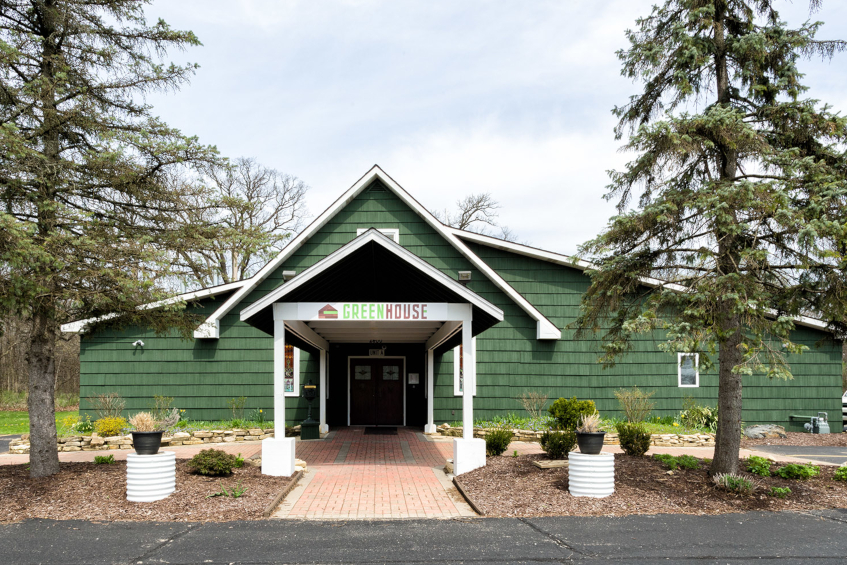Category: cannabis
Oklahoma is Good for Cannabis Business
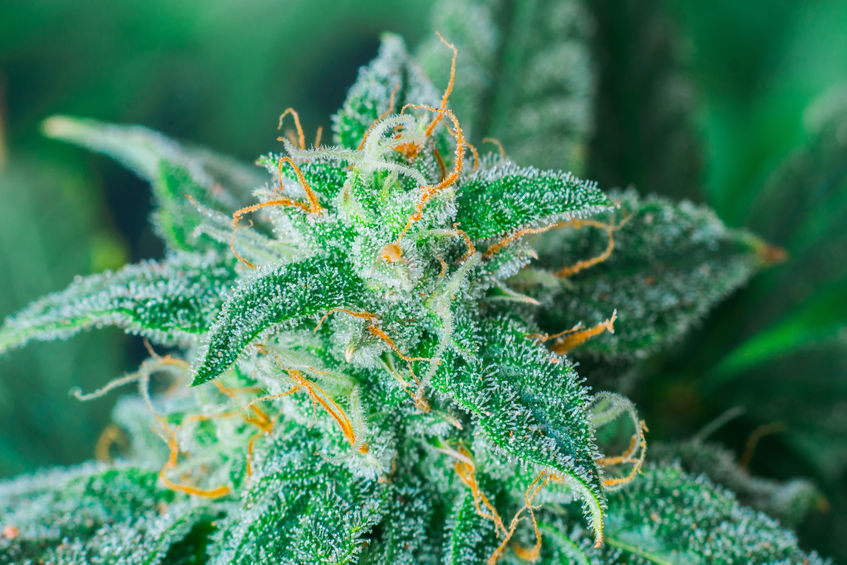
The green rush is on in the Sooner State.
Oklahoma–renowned for its once harsh possession penalties–is now a land of opportunity for medical cannabis businesses. Among the nation’s most progressive medical cannabis programs, Oklahoma has hit the ground running in only six months and is light years ahead of other states delayed by stagnating legislation.
____________________________
One of Oklahoma’s greatest differentiators is its reciprocity program that allows patients with out-of-state medical cannabis cards to qualify for renewable, temporary licenses.
____________________________
Opportunities Abound
The Oklahoma medical cannabis market could realize $250 million in annual sales in its first few years. According to the Oklahoma Medical Marijuana Authority, more than 2,200 business licenses had been issued, with an approved patient pool of more than 24,000 as of December, 2018. This speed-to-market is attributed to the fact that SQ 788 bypassed a special legislative session likely to have imposed restrictions, but instead prioritized patient-needs to get immediate access to cannabis treatments. The result is that there is no limit on business licenses, and doctors are free to recommend medical cannabis to patients for any condition they deem appropriate. In addition, the program is all-encompassing, prohibiting municipalities, cities, or counties from opting out.
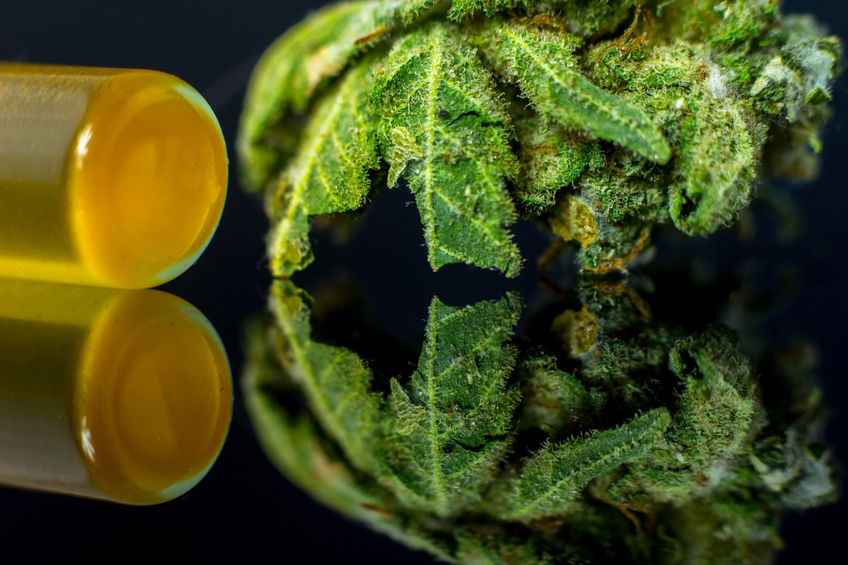
High Retail & Wholesale Prices
Though there’s no cap on business licenses, supply is tight and product demand high, which is good news for dispensaries. Patients are lining up en masse for the state’s program, creating premium value for inventory. An ounce of cannabis flower, for example, averages $400, double the cost of Arizona’s medical cannabis market. Cultivation is prospering as well, with wholesale prices averaging between $3,500 – $4,500 per pound–at least twice that of competing markets.
Reciprocity Program
One of Oklahoma’s greatest differentiators is its reciprocity program that allows patients with out-of-state medical cannabis cards to qualify for renewable, temporary licenses. They cost $100, are valid for 30 days, and permit patients to purchase, use, and even grow cannabis in Oklahoma. This provision is especially enticing for Arkansan customers as a stopgap while that program ramps up.
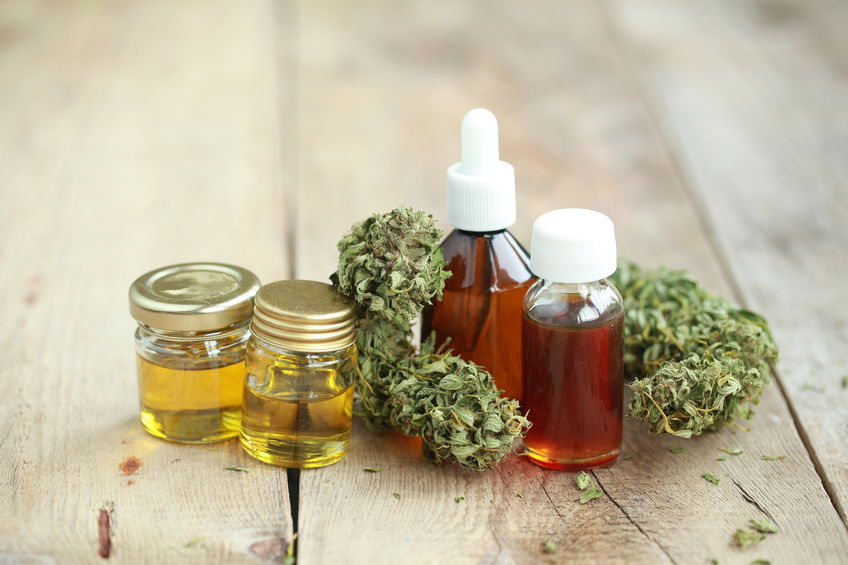
What’s Next?
Some industry insiders caution that the possibility of over-cultivation and low prices will drive down retail and wholesale prices as it’s happened in other markets. Still, with so much success in its nascent stage and the evolution of regulations, Oklahoma may find a way to stabilize supply, increase demand, and sustain momentum.
The Advantages of Integrating Processing into Your Cannabusiness

Processing or cannabis extraction is emerging as a promising growth area for cannabis businesses, opening opportunities for vertical integration. Scientific and technological innovation are taking extraction to new heights, converting the raw material of cannabis into a cornucopia of usable forms. Christian Sweeney, Director of Science and Technology at Cannabistry Labs, which develops top-of-the-line extraction methods, identifies processing as one of the four pillars–along with cultivation, analytics and biochemistry–for developing the optimal cannabis process. It’s only natural that integrating processing into your cannabusiness has many advantages, including the following:
Self-Sufficiency
Vertical integration creates self-sufficiency for cannabis businesses and can help reduce costs. Businesses that grow, process, and sell their product may reduce their dependence on suppliers or other third parties. Colorado Springs-based Strawberry Fields, for example, makes its own products, including vape pens, edibles, and lotions. They are initially contracting with a processor until they obtain the proper equipment, which can change as they incorporate distillation into their services. Strawberry Fields budgets around $3 million annually for processing fees but will spend $200,000 on equipment to bring the function in-house.
“A well-designed cannabis process goes far beyond just extraction, overlapping heavily with cultivation on the front-end and product development on the back-end.”
Diverse Retail Opportunities
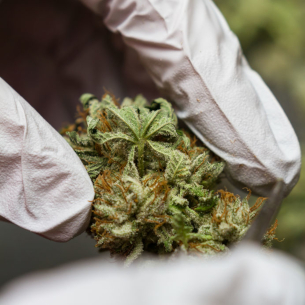
Cannabis products processed and sold onsite have the potential to become a game-changer for the industry. Similar to the farm-to-table restaurant concept, some dispensaries have added kitchens staffed with culinary personnel and food scientists, who are extracting compounds and producing edibles, oils, waxes, shatters, and more. The Mint Dispensary in Tempe, Arizona launched the country’s first full-service cannabis kitchen in October, serving the medical cannabis community. Acres Cannabis recreational dispensary in Las Vegas takes it a step further, featuring a 2,000 square foot open-view kitchen that houses its edible production and cannabis extraction operations. Customers observe the process of removing cannabinoids and terpenes from flower to create cannabis oil, and can buy the product off the shelf.
Better Quality Control
Integrating processing and cultivation at the same site can open the door for better quality control. Well-engineered facilities monitor each piece of equipment and instruments through a Building Automation System or a Direct Digital Controller. These systems provide alerts when a room or piece of equipment is not operating within the programmed specifications or range of tolerance. If both functions are located in one space, the Director of Facilities can supervise operations more efficiently.
The Bottom Line

Cannabis businesses have to keep track of many moving pieces in the name of compliance, growth, and sustainability. Integrating processing into your cannabis business can help you stay ahead, and as Sweeney notes, “A well-designed cannabis process goes far beyond just extraction, overlapping heavily with cultivation on the front-end and product development on the back-end.”
Cannabis Facility Construction Setting the Industry Standard
With the legalization of medical and recreational marijuana, Cannabis Facility Construction, Northbrook, Illinois, a division of Mosaic Construction, recognized the potential to establish a new standard in full-service facility construction of cultivation facilities, processing centers, and dispensaries. Leveraging its extensive Design-Build experience within this emerging industry, Cannabis Facility Construction has 27 cannabis facilities successfully completed and in development covering more than 286,970 square feet of usable space in multiple states.
We understand the complex issues facing cannabis business owners and investors. Our experience in the industry, combined with over 25 years of Design-Build commercial construction expertise uniquely qualifies us to help manage the challenges inherent in cannabis facility construction. We bring it all together by creating the facility that exactly meets our clients’ business needs,” according to Cannabis Facility Construction principals, Andy Poticha, Ira Singer and Mike Frazin.
In particular, Cannabis Facility Construction recognizes that there is an art and a science to converting raw materials of cannabis and finished products. Its processing centers are outfitted to master the product in all its forms and uses, and to meet all state regulations and local fire and safety codes. Its four-stage approach encompasses its Design-Build expertise for processing facilities; construction management; security infrastructure and planning; and permitting and compliance support.
Cannabis industry investors and owners recognize that they must select the right contractor who can help them best achieve their goals. Cannabis Facility Construction understands the entire process of consulting, constructing and transforming a property so that projects are delivered on time, within the budget and with minimal disruption in business operations.
“We are a company that cares about its clients and its trade partners. We understand the importance of helping others. By partnering with a multitude of organizations, we have achieved real success. Having a “Pay it Forward” mindset provides us the opportunity to find ways to make a difference through the giving of our time, resources, and financial contributions. Our diverse relationships extend to local non-profit organizations, community groups, Midwest-based charities, and national and worldwide organizations. We make the world better when we lead by example,” notes Mike Frazin.
New Governors See a Bright Future for Cannabis
Several governorships flipped as a result of the midterm elections, which can mean moving the needle on cannabis legislation. Here’s what we know about the new Governors Elect and how they are poised to change the cannabis landscape of their states:
CONNECTICUT
Ned Lamont

Recognizing that Connecticut could see $30 million or more in tax revenue in year one of legalized recreational cannabis, Lamont has stated, “It is another source of revenue for the state. All of our neighbors have legalized marijuana. We [can] do this carefully [and] regulate it.”
KANSAS
Laura Kelly
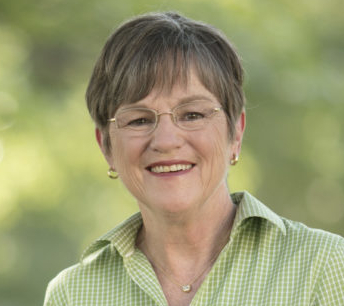
The majority of Kansans support legal recreational cannabis, but Governor Elect Kelly wants to start with medicinal first. “I think that there is some momentum in the Legislature to pass, to legalize medical marijuana,” she said. “I think we would do it Kansas-style, where it would be well-regulated.”
ILLINOIS
JB Pritzker
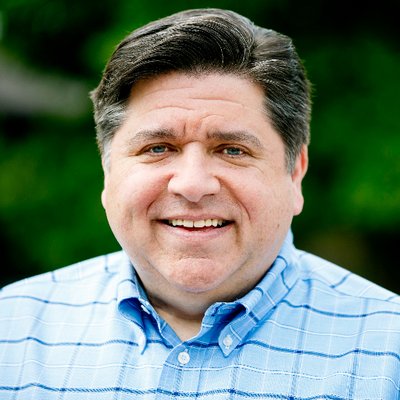
Voters in Cook County supported recreational cannabis by a margin of 63 – 37 percent in a non-binding ballot referendum in March. It served only to gauge interest for the state, which has had a medicinal cannabis program since 2015. The day after winning the gubernatorial election, Pritzker noted that legalizing the sale and possession of cannabis for recreational use is “something we can work on nearly right away…We’ll restart those conversations with the leaders in both Houses, on both Republican and Democratic sides about our priorities, which will include legalization.”
MINNESOTA
Tim Walz

The pro-cannabis Democratic–Farmer–Labor Party now controls the governorship, AG office and state House, which will help Governor Elect Walz with his recreational cannabis agenda. Earlier this year, he tweeted, “I support legalizing marijuana for adult recreational use by developing a system of taxation, guaranteeing that it is Minnesota grown, and expunging the records of Minnesotans convicted of marijuana crimes. #mngov #OneMinnesota”
NEW MEXICO
Michelle Lujan Grisham
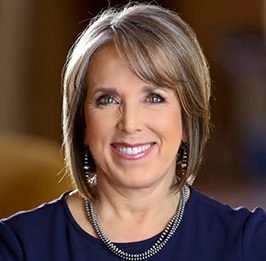
The Tax Foundation projects that New Mexico, a medical cannabis state, could raise up to $57 million in a year should it enact recreational legalization. Governor Elect Lujan Grisham appears to be onboard: “I am committed to working with the Legislature to move towards legalizing recreational cannabis in a way that improves public safety, boosts state revenues, and allows for New Mexico businesses to grow into this new market.”
WISCONSIN
Tony Evers
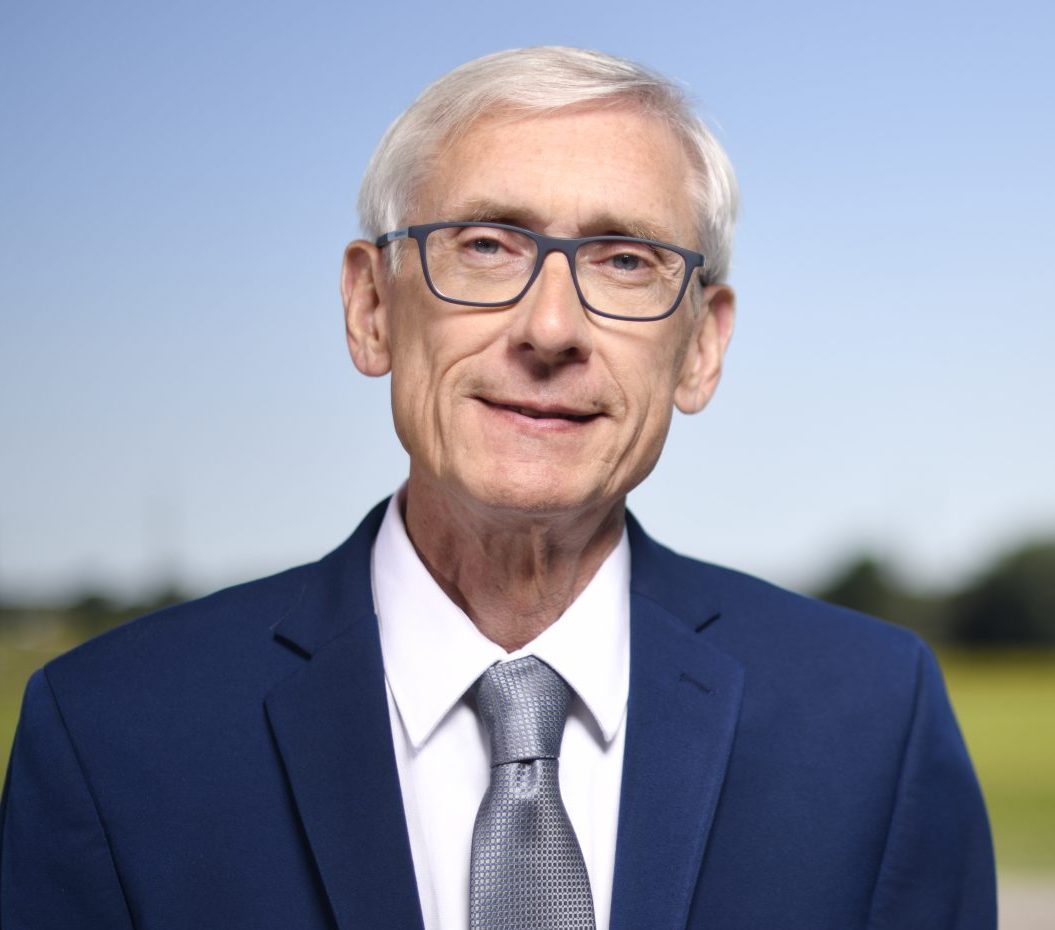
Evers is in favor of medical cannabis and will leave it to voters to decide on adult-use legalization. If the midterm elections were any indication, Wisconsin should have a fully legalized program sooner than later. Non-binding referenda in 16 counties and two cities showed that an overwhelming majority of voters support recreational and medical cannabis.
Significant legislative changes are not expected by governors elect of states that have already enacted full adult legalization. Gavin Newsom (California), Jared Polis (Colorado), Steve Sisolak (Nevada), and Kate Brown (Oregon) will most likely continue advocating as Marijuana Policy Reform Allies. Gretchen Whitmer (Michigan), a consistent supporter, will assume office in the state to most recently pass adult legalization.
Check out our other 2018 election post Green Wave: Cannabis is Midterm Elections Winner.
Green Wave: Cannabis is Midterm Elections Winner

While Democrats won back the House of Representatives and Republicans retained control of the Senate, there was a third winner that emerged from the midterm elections: cannabis. Four states voted on legalization and medical marijuana, and cannabis appeared on ballots in 22 cities and counties. Here are the results:
Michigan
Voters approved Proposal 1 by 56 – 44 percent to legalize, regulate, and tax cannabis for adult use. Michigan is now the 10th state to legalize cannabis for adults 21 and over, and it is the ninth state to establish a system for regulating commercial cultivation and sales for adult use. The new law, expected to be enacted this month, permits adults to possess, grow, and use small amounts of cannabis. Over the course of the next year, licensed businesses will be allowed to cultivate, process, and sell cannabis to consumers.
Missouri
Amendment 2 passed by a margin of 66 – 34 percent, making Missouri the 31st state to legalize medical cannabis. The new law allows physicians to approve patients to receive ID cards from the state, permitting them and their registered caregivers to grow up to six marijuana plants and purchase at least four ounces of cannabis from dispensaries on a monthly basis. Qualified patients and caregivers will have to until late 2019 or early 2020 before they can enter a dispensary and buy medical cannabis.
Two other measures failed: Amendment 3, which would have authorized doctors to recommend medical marijuana for a specific list of conditions, and would not have allowed home cultivation. Proposition C did not pass and would have taxed medical cannabis sales at two percent and allow recommendations for a specific list of conditions.
Utah
Proposition 2 passed by a margin of 53 – 47 percent and will go into effect on December 1, making Utah the 32nd state (after Missouri) to legalize cannabis for medicinal use. In its current form, the ballot measure allows qualified patients to purchase two ounces of medical cannabis or products containing 10 grams of cannabidiol or tetrahydrocannabinol from a dispensary during any two-week period. Patients who don’t live within 100 miles of a dispensary would be able to cultivate six cannabis plants at home and could designate caregivers to assist with the growing, obtaining and administration cannabis. Additionally, the state can issue licenses for cultivation, processing, testing, and dispensing businesses
There is a caveat: The Utah State Legislature plans to approve a compromise bill by sponsors of Proposition 2, opponents of the citizen ballot initiative, and political leaders.

North Dakota
Cannabis lost in North Dakota. Though a medical cannabis state, full legalization failed by a margin of 41 – 59 percent. One could point to the very loose restrictions included in the measure. For example, no set limit was proposed on the amount of cannabis that people could possess or cultivate. The state would permit production and sales but would have to create its own rules and regulations for the industry a legislative session down the road. The measure also called for automatically expunging convictions for marijuana offenses.
Local Level
Cannabis saw gains on the local level. In Ohio, voters passed local decriminalization initiatives in five of six cities. Voters in 16 counties and two cities in Wisconsin were asked non-binding, cannabis advisory questions. The results: At least 14 counties have approved cannabis advisory referendums in support of various legalization and decriminalization policies.
Check out our other 2018 election post New Governors See a Bright Future for Cannabis.
Four Ways to Keep Your Dispensary Safe Without Scaring Off Customers

During the Q&A session at a recent cannabis conference event, an audience member described her experience visiting a dispensary in Palm Springs. It felt daunting and uncomfortable, she said. There were several layers of obtrusive security, including multiple armed guards, and customers could only enter single file and one-at-a-time. You were buzzed into the entrance, waiting area, product room, and then upon exit. More than anything, she felt tense and as though she were doing something wrong.
There’s a fine line between security and customer comfort. In a predominantly cash-only business, protecting your staff, customers, and assets is paramount, but so is creating a positive customer experience. The good news is that you can have it both ways. Follow our recommendations from on how to keep your dispensary safe without scaring off customers:
Show That You’re Serious About Security
Dispensary-burglary is a primary safety concern for cannabis consumers. As dispensary owners, you can make your security presence known without it being in the customer’s face. Customers are there to shop, but they want protection, too. Be open about your security system by hiring security guards, posting visible signage, installing cameras at eye-level, and detailing your security protocols on your website.
Describe the Store Layout at Reception
Customers want to know what they’re walking into, so tell them. Whether they’re first-time or repeat customers, understanding the lay of the retail land can strengthen the customer journey. Train reception staff to provide customers with an overview of each part of the dispensary: explain the store layout and what they can expect to find in each space from the reception and waiting areas to the different sections of the shop. This is also a good time to note what security measures are in place. Remind customers that there is video surveillance and onsite security staff.
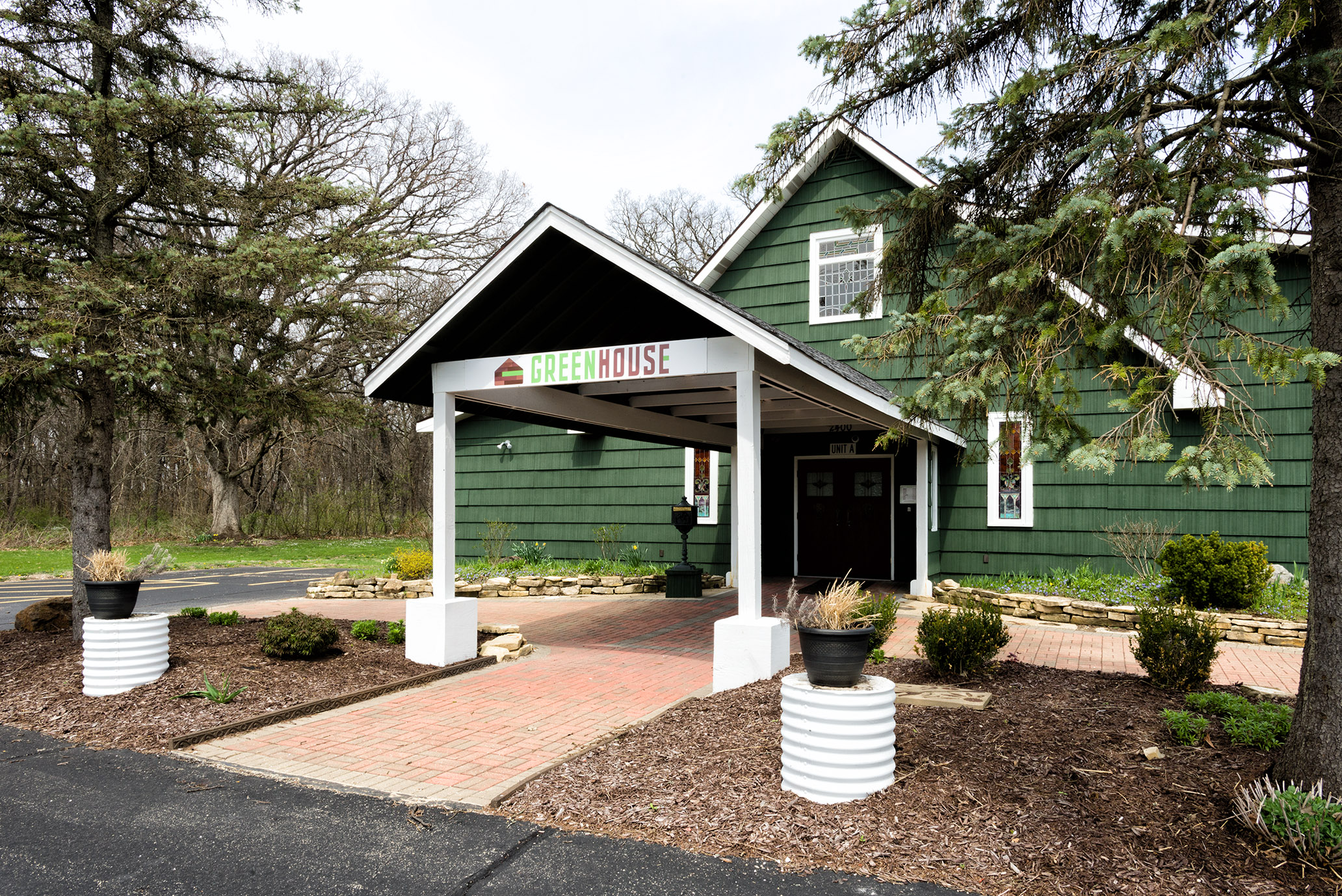
Ensure Your Security Staff is Customer-Friendly
Mountains of cash move in and out of dispensaries, and armed guards are often employed to stand watch and protect staff and customers. Security personnel carrying firearms can be intimidating. The last thing you want is for the first point of customer contact to obstruct the point of sale. Evan Hicks, Marketing Coordinator for Senseon Secure Access, a product of Accuride International, notes, “Because of marijuana’s history and, still, the stigma that exists in many communities, seeing a security guard can make customers feel skittish or even avoid coming in entirely…Many businesses opt for plain-clothes guards or guards with uniforms that mimic the rest of the in-store team.” Work with security to understand customer engagement, so they help create an inviting environment that also conveys to customers that safety is a top priority.
Make Your Space Visually Appealing
A dispensary that feels like a maximum security penitentiary, like the one described above, will not inspire loyal customers. The right design-build is critical and can make all the difference for customers to feel welcomed and relaxed. The Greenhouse in Morris, Illinois and Caliva in San Jose, California are great examples. A former restaurant remodeled into a dispensary, the Greenhouse features a reclaimed, 150-year-old bar that serves as the centerpiece of an open and comfortable space where visitors interact with budtenders and learn about the products. At Caliva (Business Insider’s Top Rated Dispensary, 2016), there is no bulletproof glass between customers and staff in the entrance, and the shop itself is designed with earthy tones and natural wood paneling.
The Bottom Line
Security weighs heavily on dispensary owners. They are tasked with meeting federal, state, and local security compliance requirements, while protecting all elements of their retail operations. Balancing safety and customer-engagement is challenging but can be achieved utilizing the best practices listed above.
Surfing the Wave of the Cannabis Boom
Four years ago, Mosaic Construction entered a new vertical in construction as we jumped feet first into the cannabis industry as a result of one of our loyal client asking for our help. Mosaic had previously built retail spaces and when we were approached to complete three design/build projects for their cannabis dispensaries in Illinois, we learned very quickly how fast the market was growing (pun intended!)
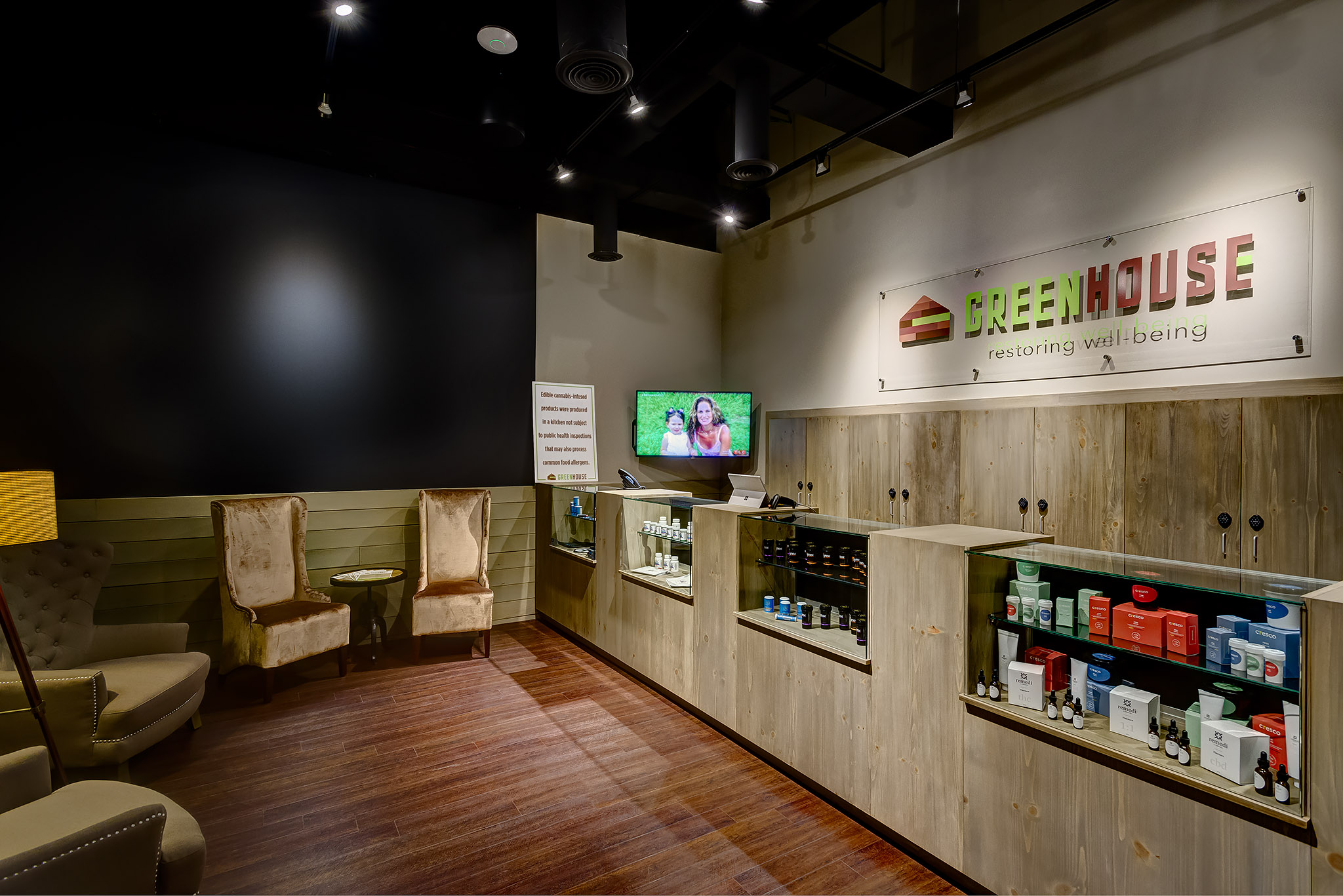
Cannabis Facility Construction was created to brand our efforts in the cannabis industry. We have grown to a nation-wide, industry leading design/build construction company. We have worked with design professionals to create unique spaces for our cannabis clients and have completed twelve Dispensary, Cultivation and/or Processing projects in six states totaling over 140,000 square feet. We have a loyal client base and have expanded our reach and talents within the cannabis industry to provide quality and highly functional facilities within this booming sector.

We are proud, sponsoring members of the National Cannabis Industry Association which represents nearly 2,000 member-businesses and tens-of-thousands of cannabis professionals. NCIA promotes the growth of a responsible and legitimate cannabis industry where they believe “Our industry is stronger, smarter, and more prosperous when we work together.” Recently, we attended the Midwest Quarterly Cannabis Caucus which is the premier B2B event series for making meaningful connections with the cannabis industry’s leading executives and policymakers while also getting the tools we need to advance the cannabis industry nationally. Recently, we spent a few days in Anaheim, CA at the California Cannabis Business Conference, the only industry association trade show preparing California cannabis businesses for success in the largest adult-use market in the world. The California Cannabis Business Conference unifies the Golden State and brought together seasoned industry leaders to convene on best business practices and operations.

Later next month, the Cannabis Facility Construction team will attend the MJBiz convention in Las Vegas. This event is the preeminent conference to drive business deals and forge valuable connections with cannabis professionals in business today. There will be over 20,000+ cannabis professionals and 1,000+ exhibitors attending. It is the networking event for anyone serious about networking in the cannabis industry.
To learn more about Cannabis Facility Construction, check out www.cannabisfacility.net.


